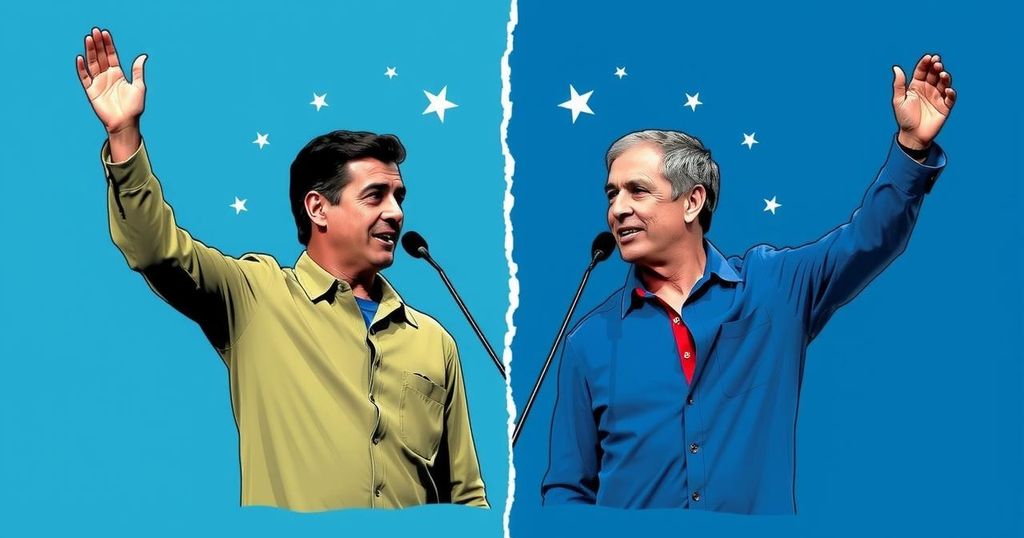Uruguay’s presidential runoff features a tight race between Álvaro Delgado and Yamandú Orsi following a first round that left both candidates seeking majority support. Economic growth and rising crime are central issues influencing voter sentiment and indecision. The election marks a significant challenge to the historic governance of the Broad Front, with contrasting proposals shaping the electoral debate.
In Uruguay, a closely contested presidential runoff is set for Sunday, with conservative candidate Álvaro Delgado facing off against leftist challenger Yamandú Orsi. This election follows an inconclusive first round, where Delgado’s National Party secured 27% of the vote and Orsi’s Broad Front garnered 44%. The election reflects a shift in dynamic years after the Broad Front’s prolonged governance, now challenged by economic issues and rising crime, setting a backdrop of voter indecision amid the candidates’ moderate appeals. Delgado promotes continuity of current pro-business policies while Orsi aims to redefine the left with investments in agriculture and modest social reforms, stirring contrasting visions for Uruguay’s future.
Uruguay has recently entered a period characterized by significant electoral competition after years of dominance by the left-leaning Broad Front. The shift became palpable following the conservative success of President Luis Lacalle Pou in 2019, who initiated liberal economic measures and social policies. Consequently, the political landscape has become a battleground for competing ideologies, with both candidates addressing public concerns over taxation, social spending, and a notable rise in crime. This referendum-like election has spurred considerable public interest, albeit marked by a sense of voter apathy and indecision due to the candidates’ similar platform elements.
Uruguay’s upcoming election exemplifies a pivotal moment in the nation’s political tradition, with the electorate faced with two divergent futures under the leadership of either Álvaro Delgado or Yamandú Orsi. As both candidates vie for the presidency amid societal concerns and economic challenges, the outcome will not only determine leadership but also shape Uruguay’s strategic direction in the coming years. This runoff highlights the intersection of history and modern policy, reflective of the country’s resilient democracy.
Original Source: www.clickondetroit.com






